In New Jersey, roof repair costs vary widely. Minor repairs could range from $300-$500, while extensive damage may cost $1,000-$3,000. Major overhauls could exceed $10,000. Factors like material and labor influence costs.
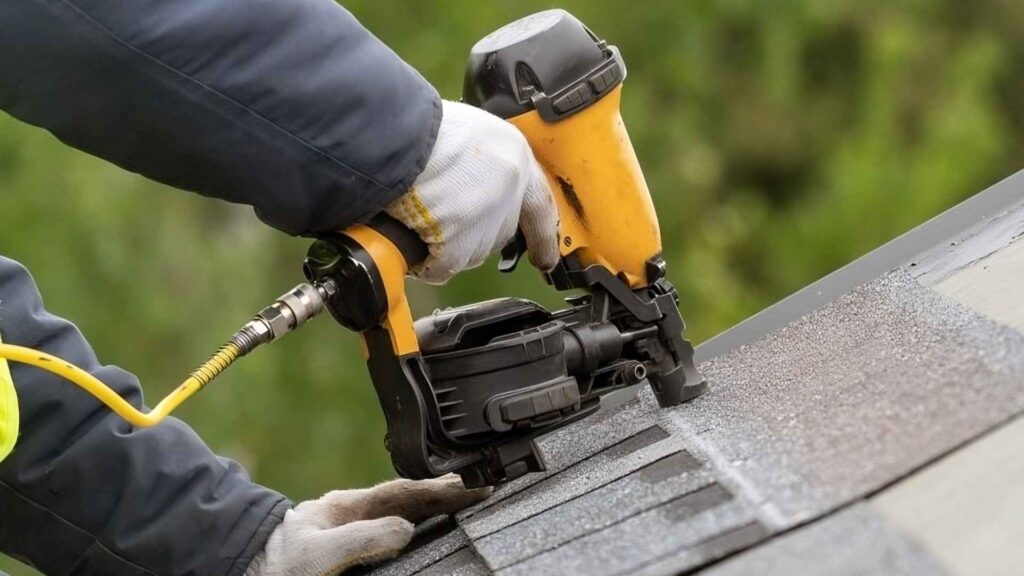
Table of contents
Factors Affecting Roof Repair Costs
Understanding the cost of roof repair isn’t as straightforward as one might think. Various elements play a role in determining the final bill you’ll receive from a contractor. Knowing what these factors are can prepare you for the repair process and help you budget more accurately. Here are the primary factors that influence roof repair costs in New Jersey:
Material Types
The material of your roof is a critical factor that significantly influences repair costs. Whether it’s asphalt shingles, wood shake, or metal, each material has its own cost range. Understanding these can offer you valuable insights when budgeting for a roof repair. Let’s explore some of the most common roofing materials in New Jersey, along with their repair cost implications:
Asphalt Shingle Repair
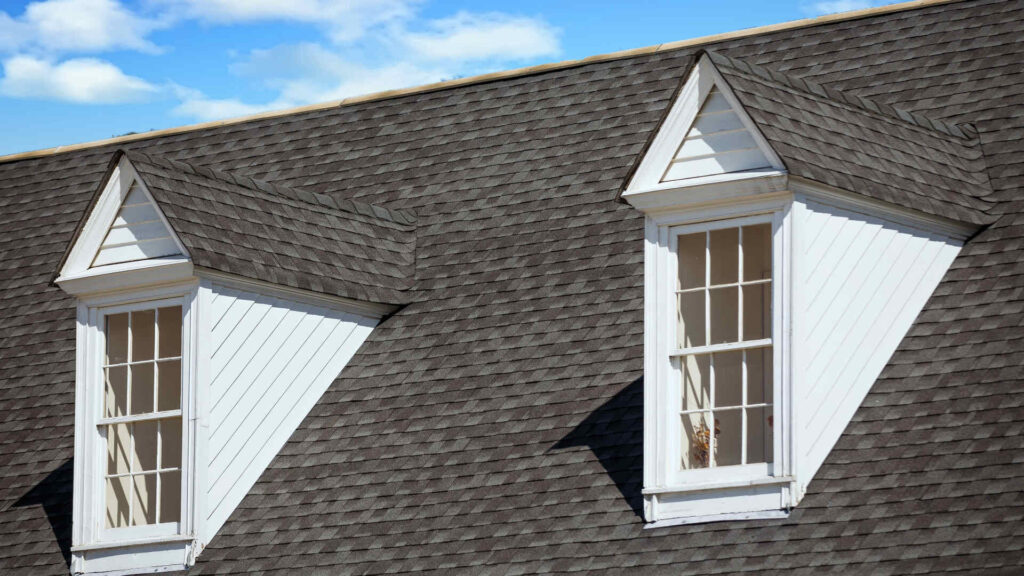
The go-to choice for many homeowners, asphalt shingles are durable yet economical. Repairs usually range from $100 to $400 per square (100 sq. ft.). Their popularity also means you’ll find plenty of contractors skilled in repairing this type of roof.
Wood Shake Repair
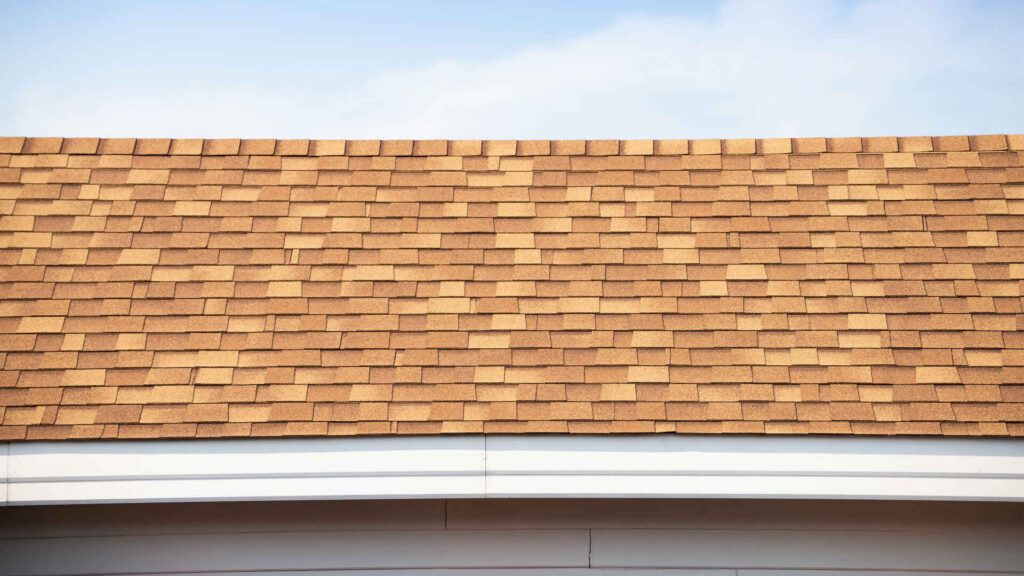
Wood shakes offer a rustic, natural look that many homeowners adore. However, they are susceptible to rot and insect damage. Repair costs can vary widely based on the extent of the damage but generally range from $250 to $600 per square. It’s also crucial to find contractors experienced in working with wood shakes to ensure a quality repair.
Metal Roof Repair
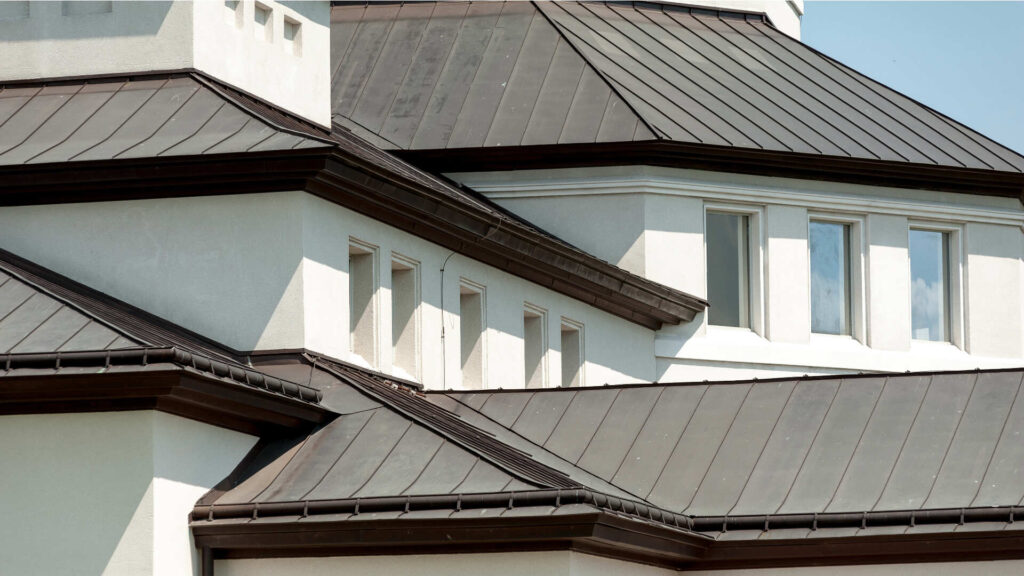
With superior longevity and energy-efficiency, metal roofs have gained favor among homeowners. However, their repair costs can be high, varying between $300 and $1,200 per square depending on the metal type. Labor costs may also be elevated due to the specialized skills required.
Tile Roof Repair
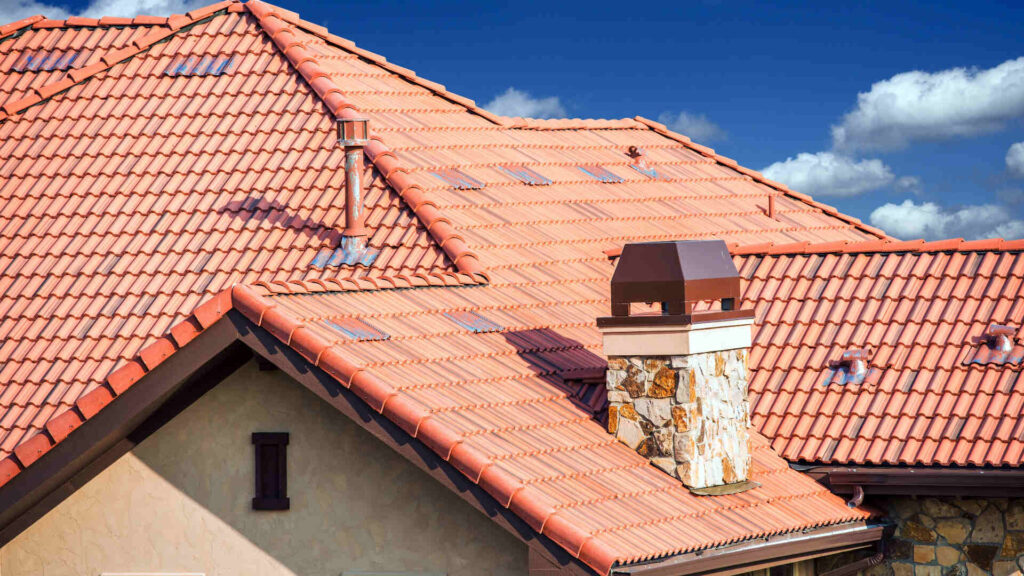
Known for their aesthetic appeal and durability, tile roofs don’t come cheap when it comes to repairs. Costs can run between $400 and $1,500 per square. Additionally, tile roof repairs may require specialized contractors, which can further increase labor costs.
| Material | Average Cost Per Square | Common Repairs |
| Asphalt Shingles | $100 – $400 | Patching leaks, replacing shingles, fixing curling edges, sealing penetrations |
| Wood Shake | $250 – $600 | Replacing rotted shakes, insect damage treatment, resealing, addressing mold and algae |
| Metal Roof | $300 – $1,200 | Seam repair, re-coating, fastening loose panels, repairing dents |
| Tile Roof | $400 – $1,500 | Replacing broken tiles, resealing, repairing underlayment, addressing mold issues |
Please note that these are just estimates and actual costs can vary depending on various factors. Always consult a reliable contractor for a personalized quote.
Labor Costs
One of the most variable and sometimes unpredictable components of roof repair costs is labor. The expenses incurred for skilled labor can differ significantly depending on various factors. Here’s what you need to know:
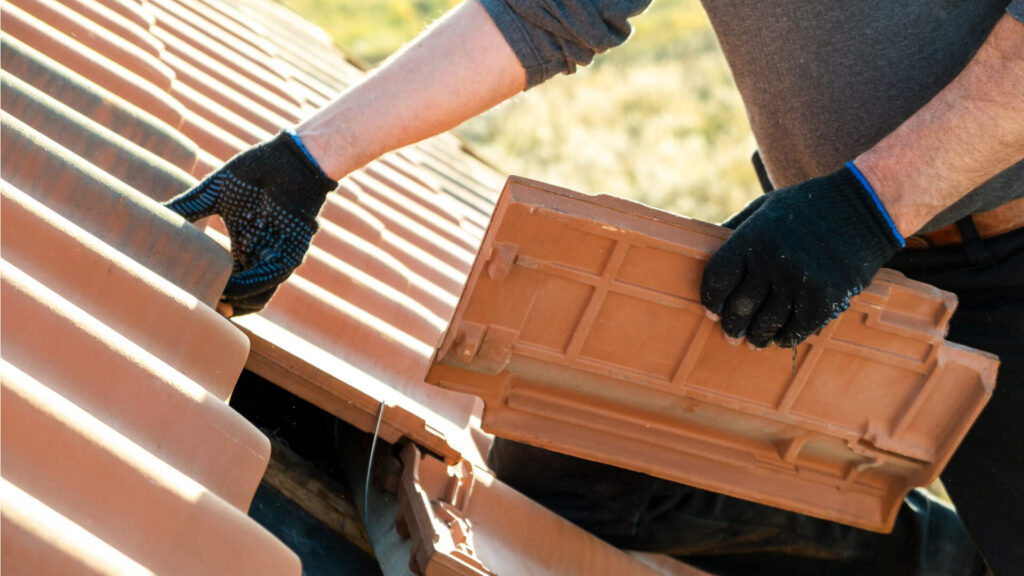
Hourly Rates vs. Project Rates
Contractors in New Jersey often charge either by the hour or by the project. Hourly rates can range from $45 to $100, depending on the contractor’s experience and the complexity of the job. Some contractors prefer to give a total project estimate, which usually includes labor, materials, and other overheads.
Emergency Services
Roofing emergencies usually command a premium. If you require immediate attention outside of regular business hours, expect to pay up to double the standard labor rates.
Extent of Damage
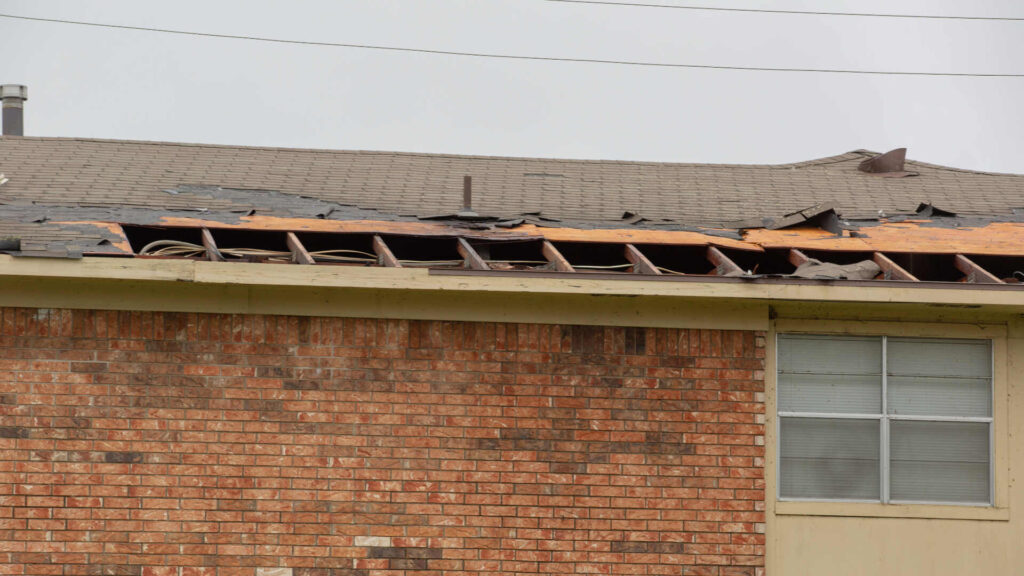
The extent of damage to your roof is a pivotal factor in determining repair costs. Minor issues like a few loose shingles may only cost around $150 to $400 to fix. Moderate repairs, like partial shingle replacement or small leak repairs, typically range from $400 to $1,000. Major repairs for extensive damage can start at $1,000 and skyrocket, depending on the severity and complexity of the issues. You can always reach out us for a free roof repair quote.
Geographic Location within New Jersey
The location of your home within the Garden State can have a notable impact on your roof repair costs. The cost of living, local competition among contractors, and even weather conditions can contribute to varying prices for roofing services.
- Urban Areas: Cities like Newark, Jersey City, and Hoboken generally have higher living costs, which translates to higher labor rates and sometimes even higher material costs. In these cities, you might expect to pay up to 20-30% more compared to rural areas.
- Suburban Locations: Areas like Cherry Hill or Princeton offer a more moderate pricing range. Here, you may find a balance between quality and cost, especially if you are willing to shop around for quotes.
- Rural Areas: More remote locations in New Jersey often feature lower labor rates, but you may find a limited selection of contractors and materials, which could influence total costs.
- Coastal Regions: Locations close to the coast like Atlantic City or Cape May may have additional requirements for wind and water resistance, affecting material choice and ultimately, the cost.
- Northern vs. Southern New Jersey: Climate conditions vary within the state, with northern regions experiencing harsher winters. Roof repairs here may involve additional considerations for snow and ice, which could elevate repair costs.
Seasonality
Believe it or not, the time of year you choose to have your roof repaired can influence the overall cost. Here’s how:
High-Demand Seasons
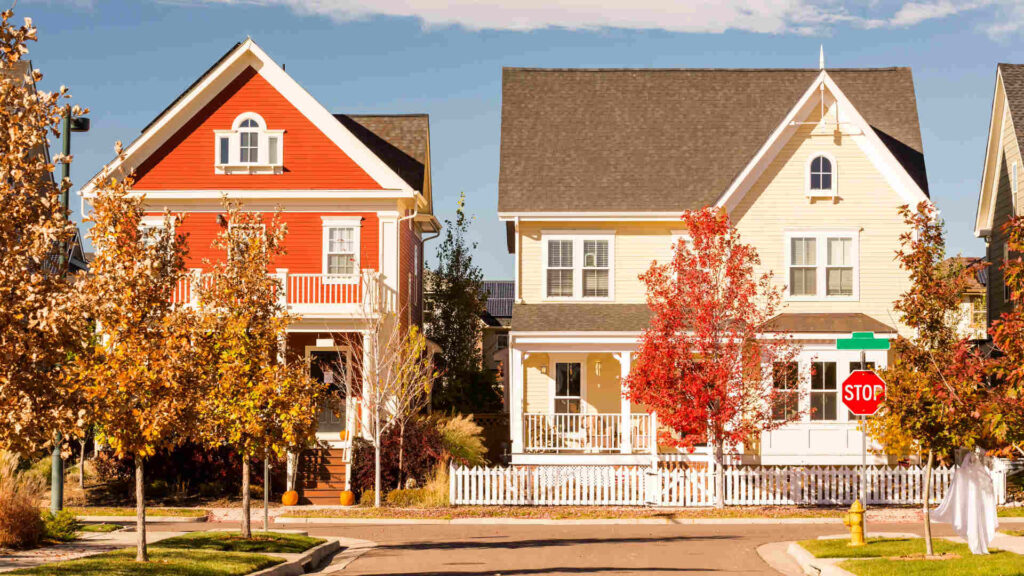
In New Jersey, the high-demand season for roof repair spans from late spring to early fall. During these months, contractors are busiest, often leading to higher rates and longer wait times for service. It’s also more challenging to negotiate prices due to the increased demand. If you’re planning a repair during this period, it’s wise to book well in advance to secure reasonable rates and a reputable contractor.
Off-Season Discounts
Roof repair costs can vary by season, and in New Jersey, the off-season—comprising late fall, winter, and early spring—may offer financial advantages. During these quieter months, contractors are often less busy and may offer discounts to secure work. It’s a good time to negotiate lower rates, especially for non-emergency repairs. However, be cautious about the weather conditions, as colder temperatures and snow can pose challenges to roofing work.
Additional Costs to Consider
When budgeting for a roof repair in New Jersey, focusing solely on the cost of labor and materials can be misleading. There are several other expenditures that can add layers of complexity to your financial planning.
Permits
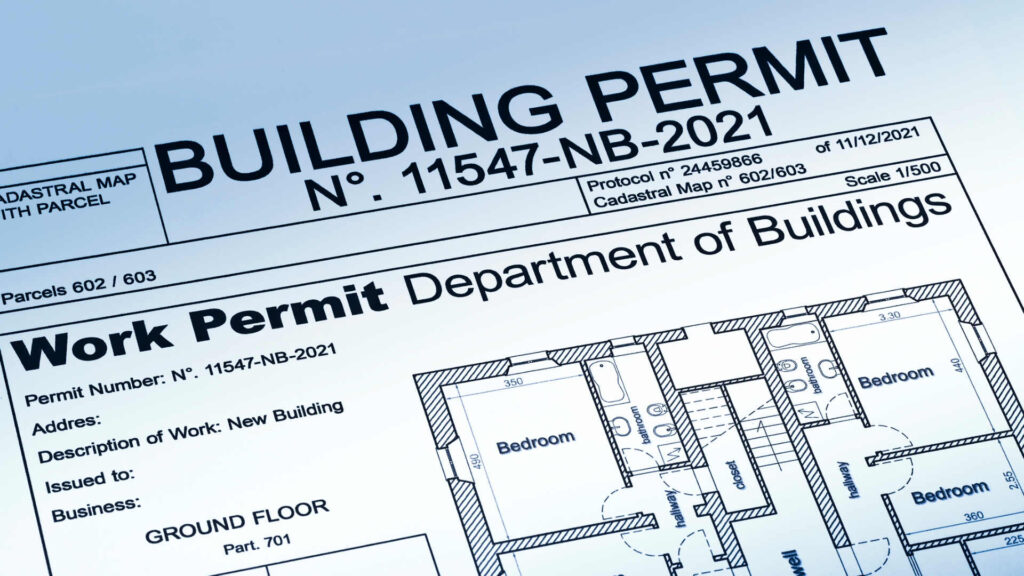
If you own a detached one- or two-family dwelling in New Jersey and are looking to repair or replace your roof, you’ll be pleased to hear that a construction permit is not mandated as of March 2018. This change in regulations comes courtesy of New Jersey’s Department of Community Affairs, which has classified such roofing activities as either “minor work” or “ordinary maintenance,” thereby eliminating the need for state-enforced inspections (Source).
However, it’s essential to consult local ordinances, as municipal regulations may differ from state guidelines. Always ensure you are in compliance with your local building codes to avoid any future complications or penalties.
Consultation and Inspection Fees

In New Jersey, the initial step in roof repair usually involves a professional consultation and inspection, with fees generally ranging from $100 to $300. These fees compensate the contractor for their time and expertise in assessing the condition of your roof and providing a detailed estimate. Some contractors may deduct this fee if you hire them for the full project, offering a slight savings opportunity.
During the roof repair consultation, you’ll typically receive an in-depth analysis of your roof’s condition, followed by a written estimate that details the scope of work and costs, helping you make an informed decision.
Disposal and Cleanup
When budgeting for a roof repair in New Jersey, it’s important to also consider disposal and cleanup costs. These fees can add to your overall expenditure, ranging from $100 to $500 based on the scale and complexity of the project.
Disposal costs are influenced by the type and volume of material being removed, as local landfill fees may apply. Cleanup labor is usually included in your overall estimate but can sometimes be an additional charge. While these expenses may seem minor, they’re essential for a smooth and hassle-free project completion.
Does Home Insurance Cover Roof Repair Costs?

A common question homeowners in New Jersey ask is whether their home insurance will cover the costs of roof repair. The answer varies depending on several factors, including the cause of the damage, the age of the roof, and the specifics of your insurance policy.
- Cause of Damage: If your roof was damaged due to events like storms, hail, or other ‘acts of God,’ your insurance might cover the repair costs. However, if the damage is due to neglect or regular wear and tear, you’re likely on your own financially.
- Roof Age: Some insurance policies consider the age of your roof when determining eligibility for coverage. Older roofs may not be fully covered or may be subject to higher deductibles.
- Policy Specifics: Always review your policy carefully to understand what is and isn’t covered. Some policies may require you to meet certain conditions, like regular maintenance, to qualify for coverage.
Understanding your home insurance policy’s stance on roof repair can save you from unexpected financial burdens. Always consult your policy and speak to your insurance agent for tailored advice.
Conclusion
Navigating the intricate world of roof repair costs can be overwhelming, but the more you know, the better prepared you are. Every choice you make, from selecting the type of material to deciding when to schedule the repair, has financial implications. It’s more than just a repair; it’s about enhancing the value, efficiency, and durability of your home. By diving into the specifics of labor costs, seasonal variations, and additional fees, you’re not just spending money—you’re making informed investments.
What’s often overlooked is the strategic value of knowing when and how to repair your roof. By aligning your repair needs with the quieter months, or understanding the fine print in your insurance policy, you can achieve cost efficiency without compromising on quality. With proper planning and an informed perspective, you can turn roof repair from a daunting task into a strategic household project.
Fact checked by Jacob Petrosky – 9/7/23